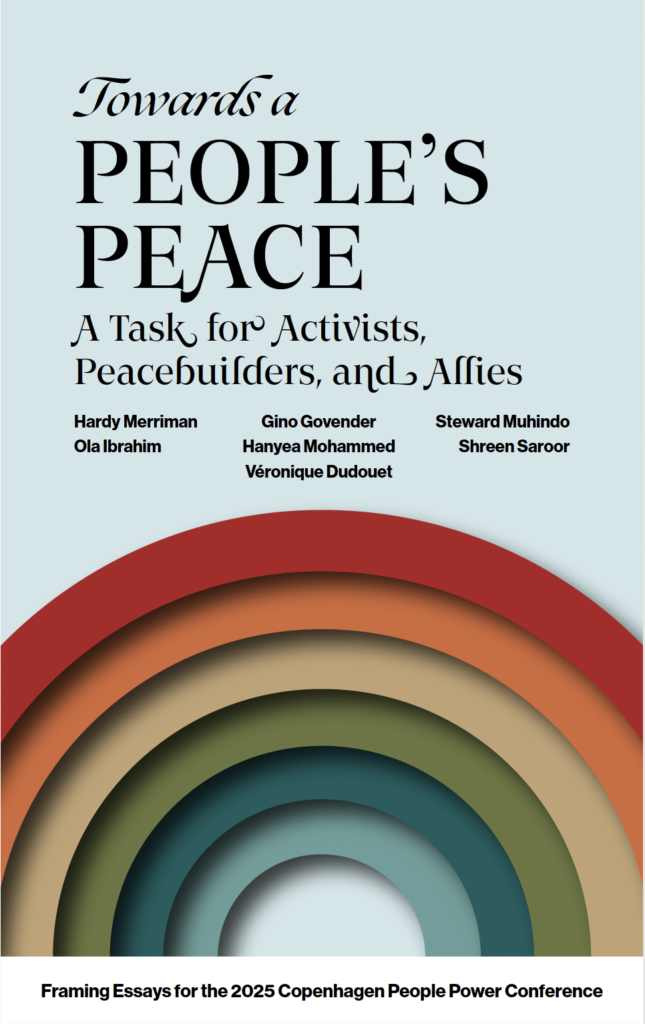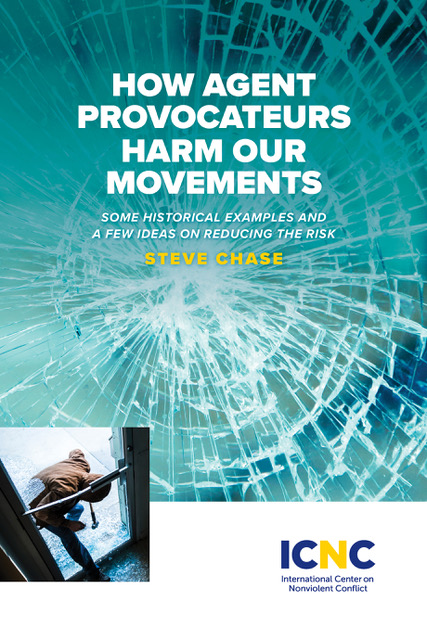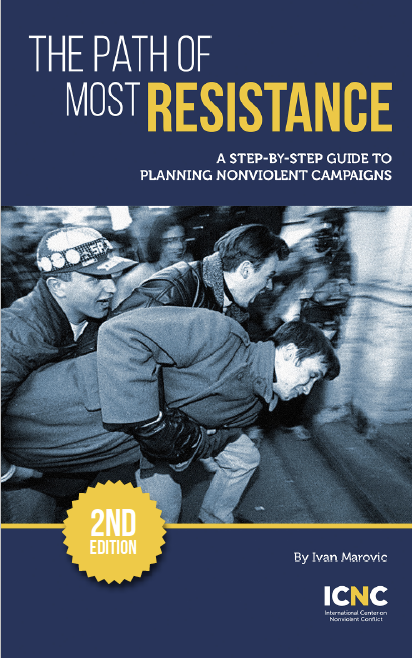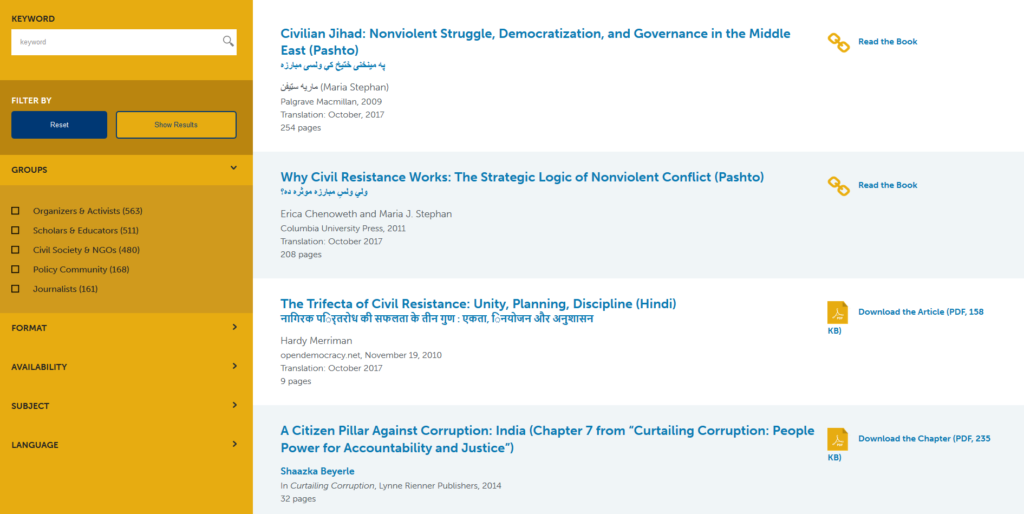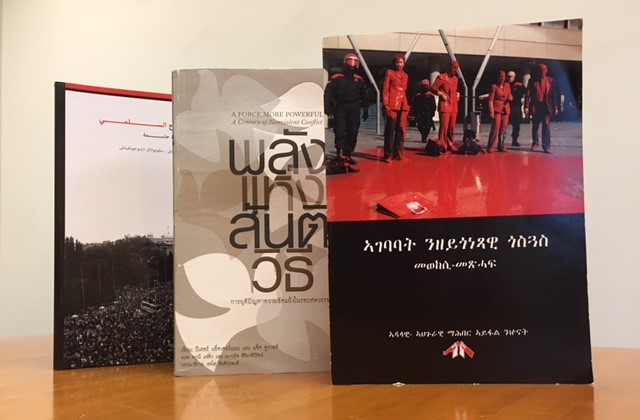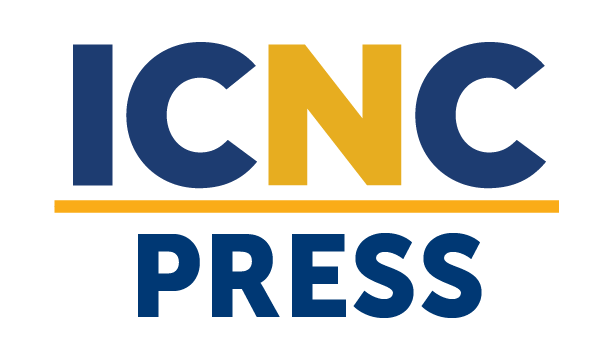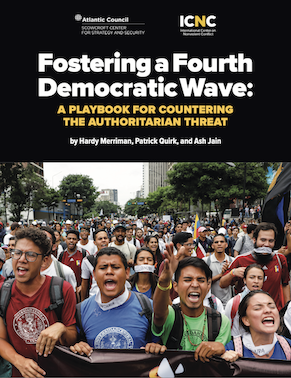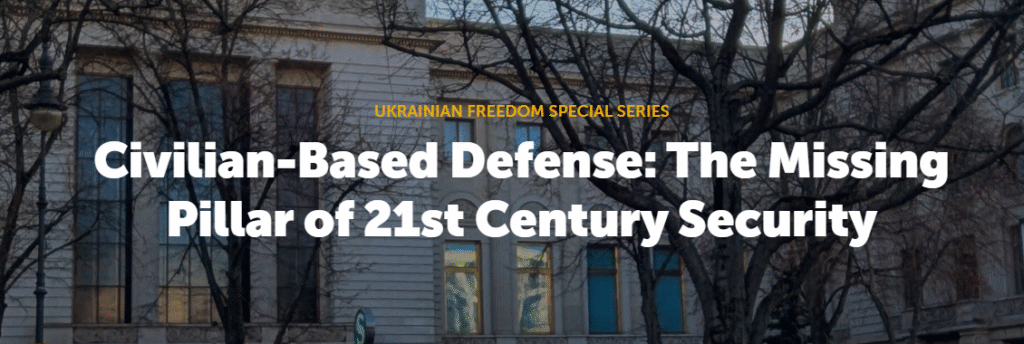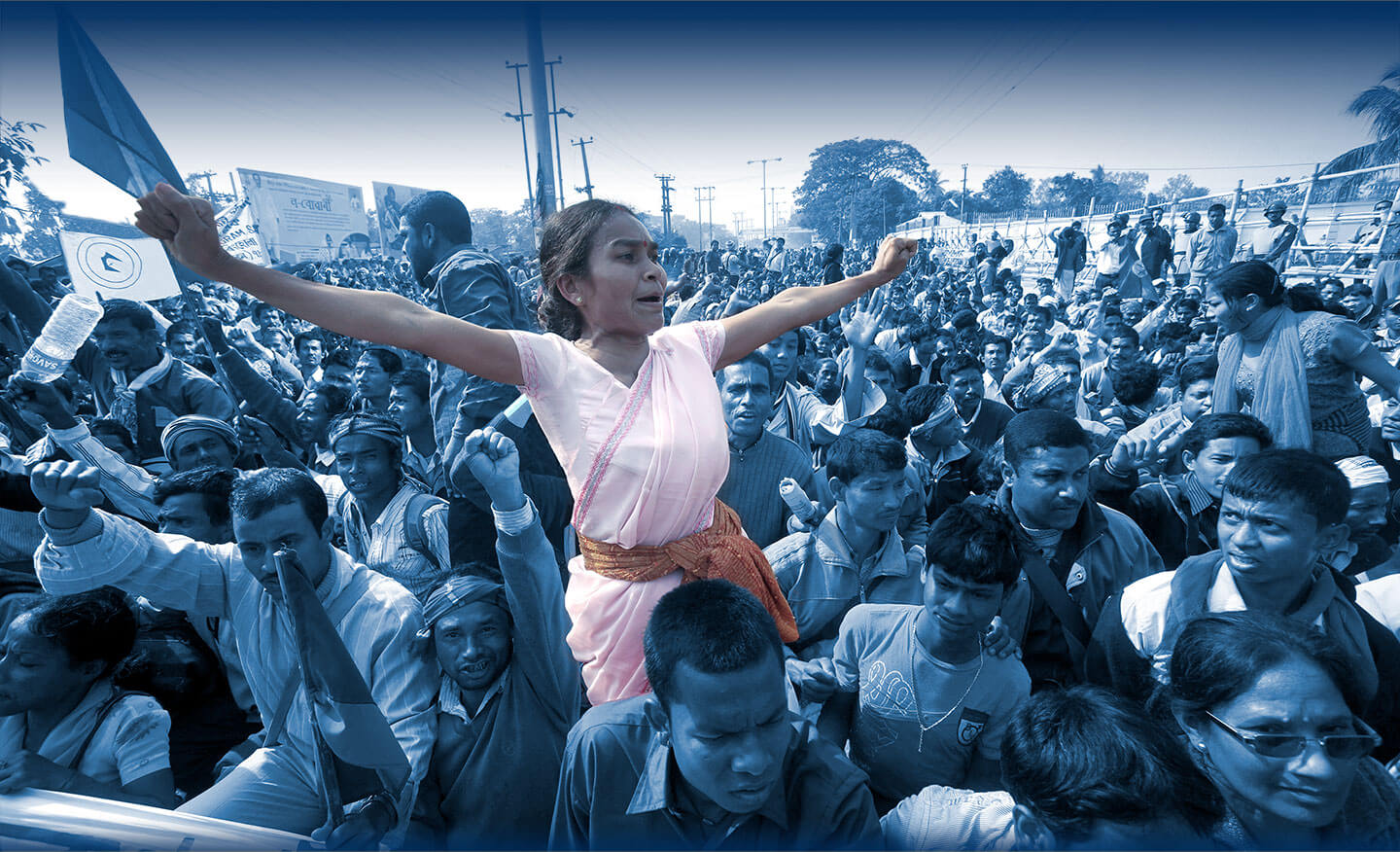

-
Webinar on Participatory Democracy in Movements
Tuesday, February 10 | 12:00 – 1:30pm EST
Join the authors of Anatomy of the Plenum for a live conversation unpacking what the plenum experience in the ongoing Serbian student movement teaches us about power, legitimacy, organization, and the limits—and possibilities—of participatory democracy. An activist respondent from Germany’s New Generation movement will reflect on the book’s insights from the perspective of lived movement experience, connecting the Serbian case to broader struggles for democratic agency around the world. This webinar offers timely discussion about how movements learn, adapt, and make decisions under pressure.
Register to Attend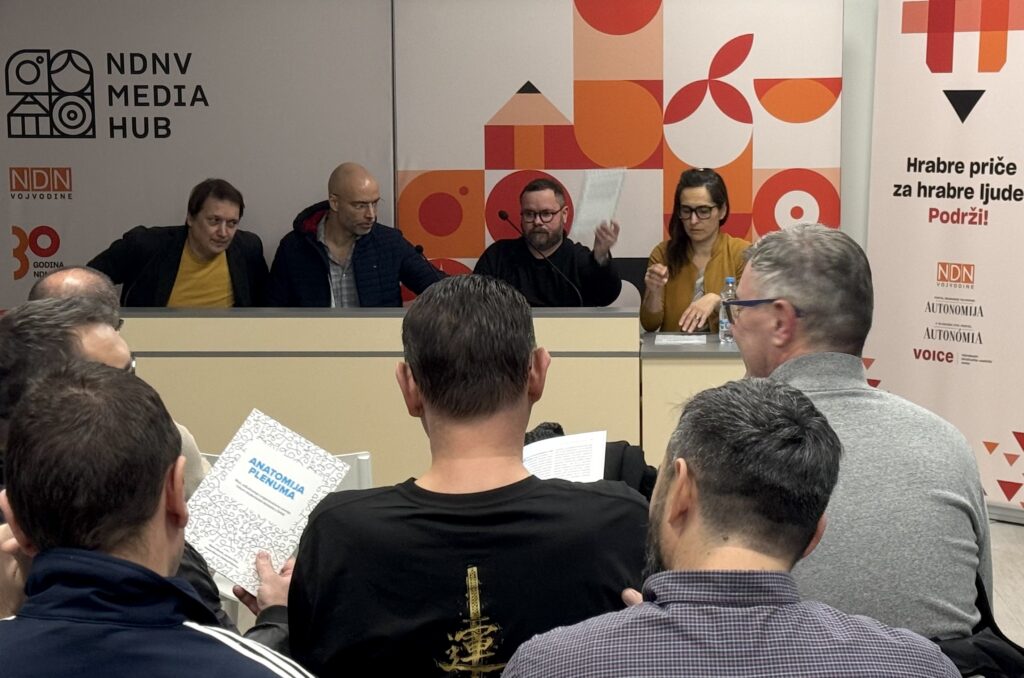
-
New Publication:
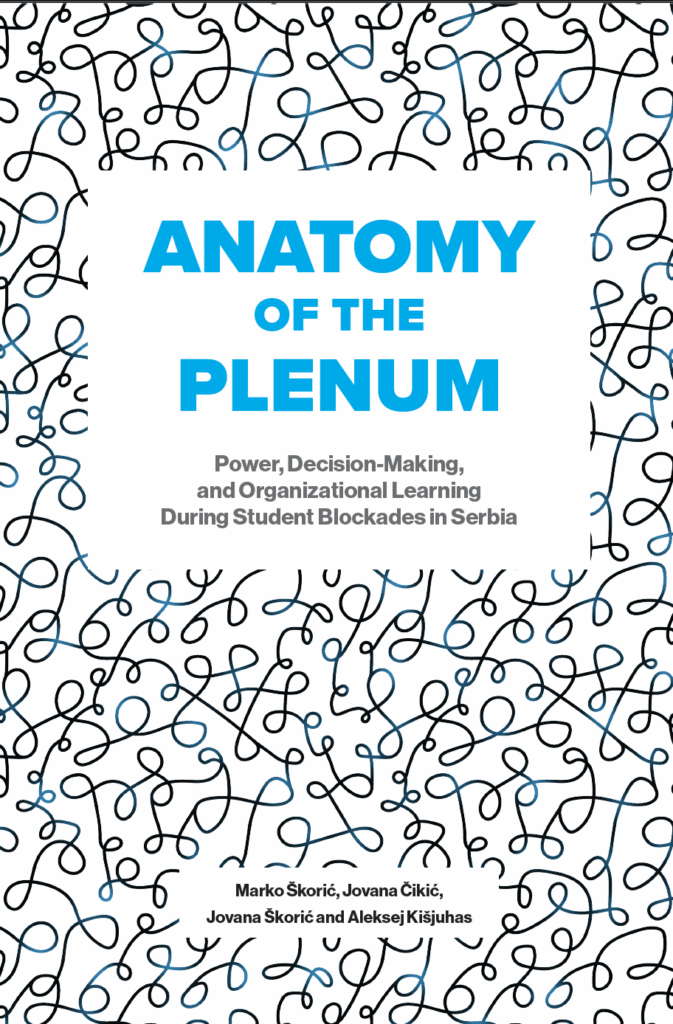
What really happens inside a movement when people decide to govern themselves? Anatomy of the Plenum takes readers inside the student blockades that swept Serbian universities after the deadly Novi Sad railway station collapse, offering a rare, ground-level view of how ordinary students built extraordinary systems of collective decision-making. Drawing on dozens of in-depth interviews, the book reveals how plenums—horizontal, participatory assemblies—became living laboratories of democracy: spaces where students debated strategy, managed conflict, organized logistics, confronted repression, and wrestled with the messy realities of direct rule by the many.
Available in English and Serbian.
Download a Free Copy -
Inscríbase Ahora: Cursos de Español
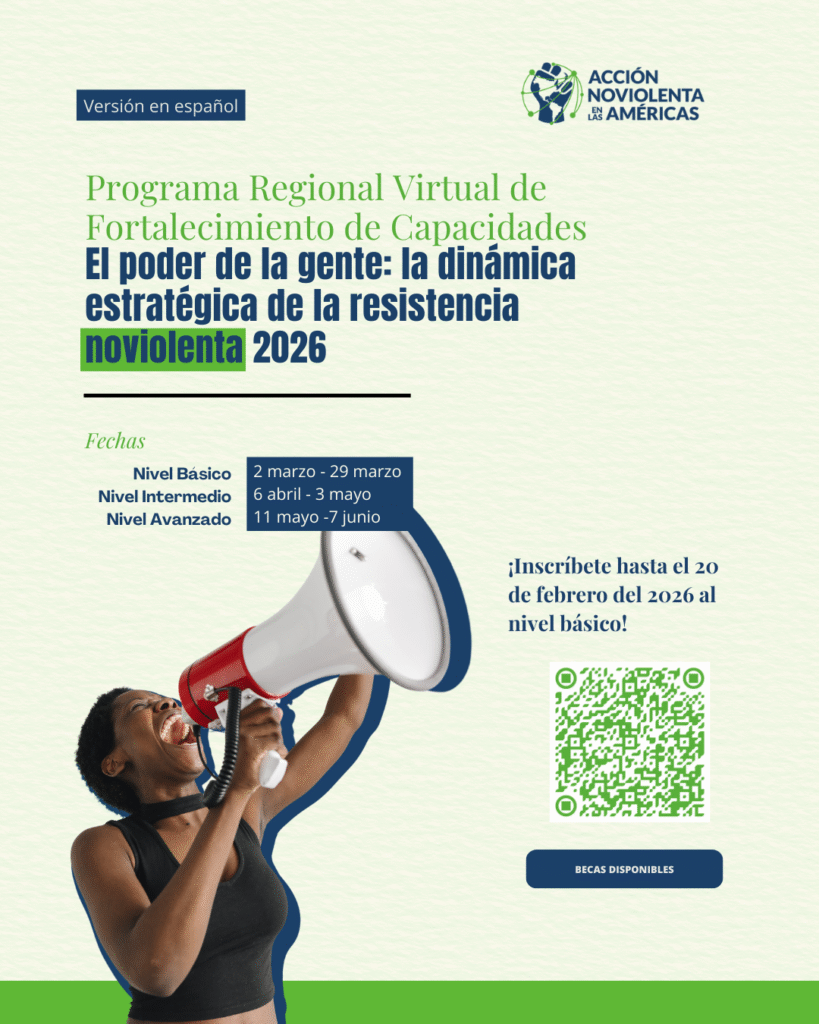
Anunciamos la edición 2026 de nuestro Programa Regional Virtual de Fortalecimiento de Capacidades «El poder de la gente: la dinámica estratégica de la resistencia noviolenta», diseñado para profundizar en el estudio y la práctica de la resistencia civil en América Latina y el Caribe.
Está estructurado en tres niveles, cada uno de 30 horas con una duración de 1 mes, que puedes tomar de forma seguida o en distintos momentos para completar el programa.
✔ Básico: 02 al 29 de marzo
✔ Intermedio: 06 de abril al 03 de mayo
✔ Avanzado: 11 de mayo al 07 de junio
Inscríbase abajo hasta el 20 de febrero.
Inscríbase Aquí -
Publication Spotlight:
Towards a People’s Peace
This April, ICNC Press has released a collection of framing essays for the 2025 Copenhagen People Power Conference, in collaboration with ActionAid Denmark. This book brings together cutting-edge research and first-person accounts from activists and peacebuilders on the frontlines in the Democratic Republic of the Congo, Sudan, Ethiopia, and Sri Lanka, alongside insights for a global solidarity movement from activists in Palestine, Ukraine, and Lebanon. It offers a bold vision for how movements can shape peace and security, and practical lessons for policymakers and allies committed to supporting peace from below.
Download a Copy Today
-
For Activists & Organizers
How Agent Provocateurs Harm Our Movements
by Steve Chase
History shows us that peoples’ movements are more likely to succeed when they have unity among supporters, widespread participation, strategic planning, and nonviolent discipline. Unsurprisingly, movement opponents use agent provocateurs—fake activists working undercover—to behave in counterproductive ways that undermine these four keys to success.
Drawing from international examples, and an in-depth case study of the US Black Liberation Movement, this volume explores how agent provocateurs—and agent provocateur-like behavior—make movements smaller, weaker, and easier to defeat. It also offers some ideas for how activists can inoculate their movements against such harms and increase their chances of success.
• Download
• Purchase
• Watch the webinar presentation by the author
Learn More -
Second edition of :
The Path of Most Resistance: A Step-by-Step Guide to Planning Nonviolent Campaigns
by Ivan Marovic
The Path of Most Resistance: A Step-by-Step Guide to Planning Nonviolent Campaigns is a practical guide for activists and organizers of all levels, who wish to grow their resistance activities into a more strategic, fixed-term campaign. It guides readers through the campaign planning process, breaking it down into several steps and providing tools and exercises for each step.
The Second Edition released in March 2021 includes chapters on tactics and running a tactical planning workshop, and a Foreword by Hardy Merriman.
Free Download:
Learn More
• Second edition: English
• First edition: Catalan | French | Polish | Portuguese (Brazilian) | Spanish | Urdu -
Visit our full resource library to find hundreds of resources on civil resistance in English and over 70 languages.
Or, if you are interested in civil resistance and don’t know where to start, we’ve made a list of general introductory resources–many of them short articles–to introduce you to the field. See our list of ten key resources for activists and organizers.
Visit the Resource Library -
ICNC Translations Program
Translating civil resistance literature into diverse languages is one of the most powerful ways to spread knowledge and increase the effectiveness of nonviolent movements struggling for rights, freedom, and justice. Learn more about our translations program or read our glossary of key terms.
We also currently host resources on civil resistance in over 70 languages and dialects on our website.
Find Translated Resources
-
For Scholars & Students
The discipline of civil resistance has developed enormously in recent years, driven by new quantitative and qualitative scholarly research, as well as by numerous nonviolent movements around the world.
ICNC runs a number of grant-supported academic and educational programs to meet the growing demand for cutting edge research, applied knowledge and practical skills in this field. Look at our research, writing, teaching and other educational offerings and review current calls for proposals or applications.
Learn More -
Academic Online Curriculum
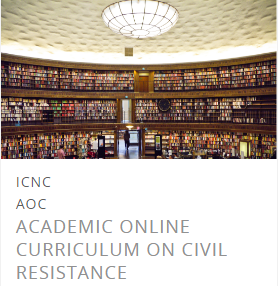 ICNC’s Academic Online Curriculum on Civil Resistance (AOC) is an online resource to advance curriculum development, teaching, and research on civil resistance. It offers an extensive and regularly updated set of resources in this field, organized into clearly structured topics and case studies, and drawn in part from content that we and various academic collaborators developed for the ICNC university seminars we’ve led since 2009.
ICNC’s Academic Online Curriculum on Civil Resistance (AOC) is an online resource to advance curriculum development, teaching, and research on civil resistance. It offers an extensive and regularly updated set of resources in this field, organized into clearly structured topics and case studies, and drawn in part from content that we and various academic collaborators developed for the ICNC university seminars we’ve led since 2009.Anyone can register to use the AOC at any time and it is free to use.
Topics on the AOC include:
– Civil Resistance: Nature, Ideas and History
– Strategic Considerations in Civil Resistance Struggles
– Types of Civil Resistance StrugglesAnd more!
Register Now! -
Calls from Academic Initiatives
 Throughout the year, we offer a number of academic opportunities, resources, and support that it makes available to scholars and students. The field of civil resistance has grown immensely and these academic programs aim to respond to the growing demand for knowledge and skills and contribute to expanding the quality of education, research, and curriculum related to civil resistance. This page includes the current and past calls for educational and research programs, such as learning opportunities, curriculum support, and research grants.
Throughout the year, we offer a number of academic opportunities, resources, and support that it makes available to scholars and students. The field of civil resistance has grown immensely and these academic programs aim to respond to the growing demand for knowledge and skills and contribute to expanding the quality of education, research, and curriculum related to civil resistance. This page includes the current and past calls for educational and research programs, such as learning opportunities, curriculum support, and research grants.One of our calls, the Rapid Field Research and Data Collection Program, accepts applications on a rolling basis and interested applicants can apply for the program throughout the year.
Learn More -
New from ICNC Press:
 Preventing Mass Atrocities: From a Responsibility to Protect (RtoP) to a Right to Assist (RtoA) Campaigns of Civil Resistance
Preventing Mass Atrocities: From a Responsibility to Protect (RtoP) to a Right to Assist (RtoA) Campaigns of Civil Resistance
by Peter Ackerman and Hardy Merriman
Available in: English, Arabic, and SpanishEvents of the last decade demand new approaches to atrocity prevention that are adaptable, innovative and independent of a state-centered doctrine. With the aim of reducing risk factors such as civil war, we argue for a new normative framework called The Right to Assist (RtoA). […]
See ICNC Press Publications
-
For the Policy Community
New Publication:
Fostering a Fourth Democratic Wave:
A Playbook for Countering the Authoritarian ThreatFostering a Fourth Democratic Wave combines insights on civil resistance, democratic waves, autocratization and democratic backsliding, international law, and other disciplines to advance a foreign policy approach that supports and enables pro-democracy and human rights movements. It:
1. Proposes new approaches and tools to support civil resistance movements
2. Advances a new international norm — the “Right to Assistance”
3. Develops strategic and tactical options to constrain authoritarian regimes and drive up the cost of their repression
Download a Free Copy -
ICNC Releases Major Study on International Support to Nonviolent Campaigns
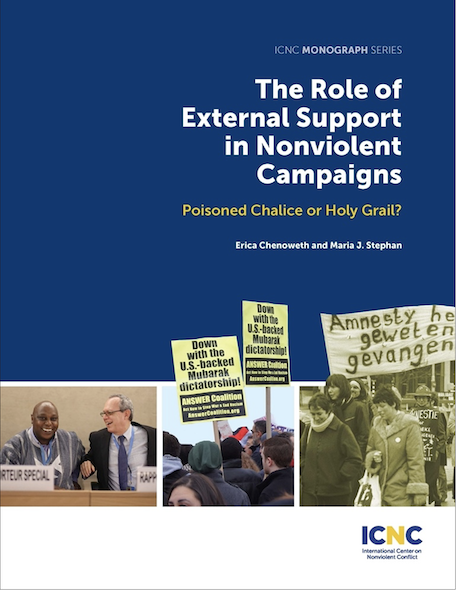 ICNC is proud to present the newest addition to its popular Monograph Series, The Role of External Support in Nonviolent Campaigns: Poisoned Chalice or Holy Grail? by Drs. Erica Chenoweth and Maria J. Stephan, authors of the groundbreaking civil resistance classic, Why Civil Resistance Works.
ICNC is proud to present the newest addition to its popular Monograph Series, The Role of External Support in Nonviolent Campaigns: Poisoned Chalice or Holy Grail? by Drs. Erica Chenoweth and Maria J. Stephan, authors of the groundbreaking civil resistance classic, Why Civil Resistance Works.
Published by ICNC Press, this new report employs original, qualitative, and quantitative data to examine the ways that external assistance impacted the characteristics and success rates of post-2000 revolutionary nonviolent uprisings.Download the full monograph for free here.
Watch the March 3 webinar with the renowned authors here.
Read More
-
Minds of the Movement Blog
Minds of the Movement is a blog for those interested in the ideas and experiences of people on the front line of civil resistance, and those who seek to understand the art and science of nonviolent struggle.
Learn More -
Oleksandra Keudel and Oksana Huss write: “Since 2022, Russia’s war of aggression has unleashed overlapping crises—attacks on civilians, destruction of infrastructure, mass displacement, and economic downturn. Many assume such emergencies demand strict central control. Ukraine’s experience shows the opposite: resilience has come from polycentric governance—state and non-state actors working together, drawing on local knowledge, pooling resources, and strengthening social cohesion. […]”
Read more! -
Felip Daza writes: “The transformation of contemporary conflicts reflects the profound crisis of the international order. The intensification of hybrid warfare—characterized by the combined use of non-military tactics, technological tools, and multidimensional strategies operating in the so-called “grey zone”—challenges traditional security frameworks and constrains state responses. Instruments such as disinformation, cyber warfare, and economic coercion do not operate in isolation; they aim to destabilize from within, eroding social cohesion and paralyzing institutional responses. […]”
Read more! -
Jamila Raqib writes: “In a world marked by renewed invasion, democratic backsliding, coups, and hybrid warfare, governments are pouring vast resources into military deterrence. Yet one of the most powerful–and underdeveloped–tools of national defense remains largely absent from security policy: civilian-based defense. This is surprising, in light of the increasingly recognized role the Ukrainian people have played in resisting invasion and other forms of Russian aggression. […]”
Read more!

